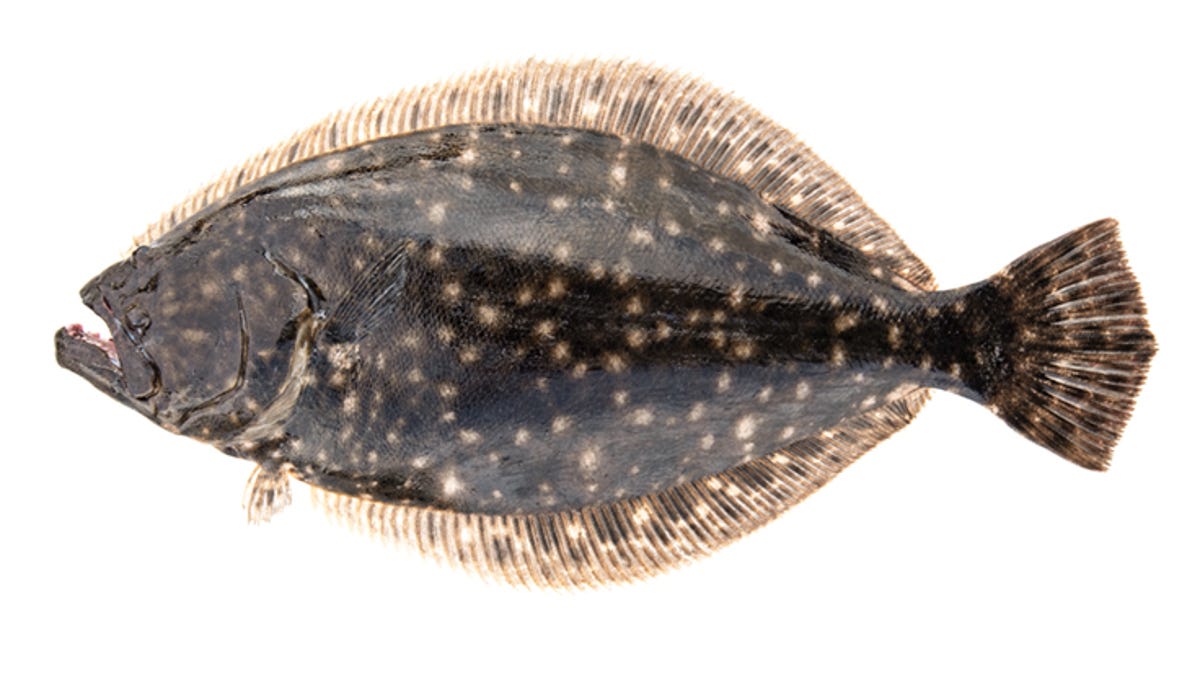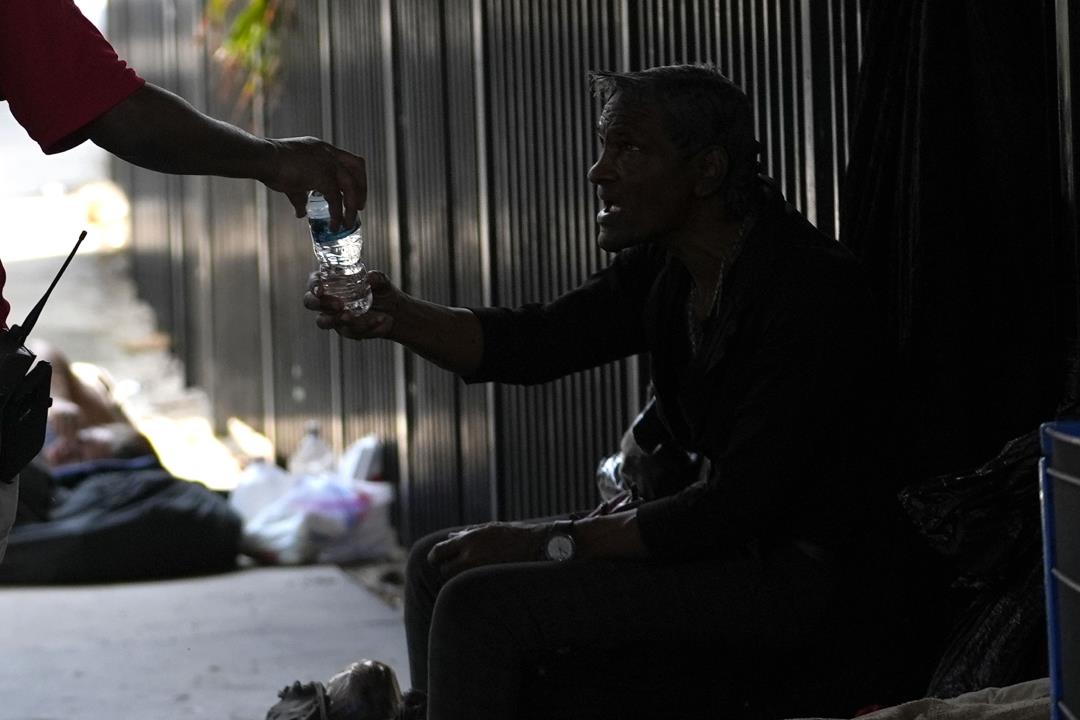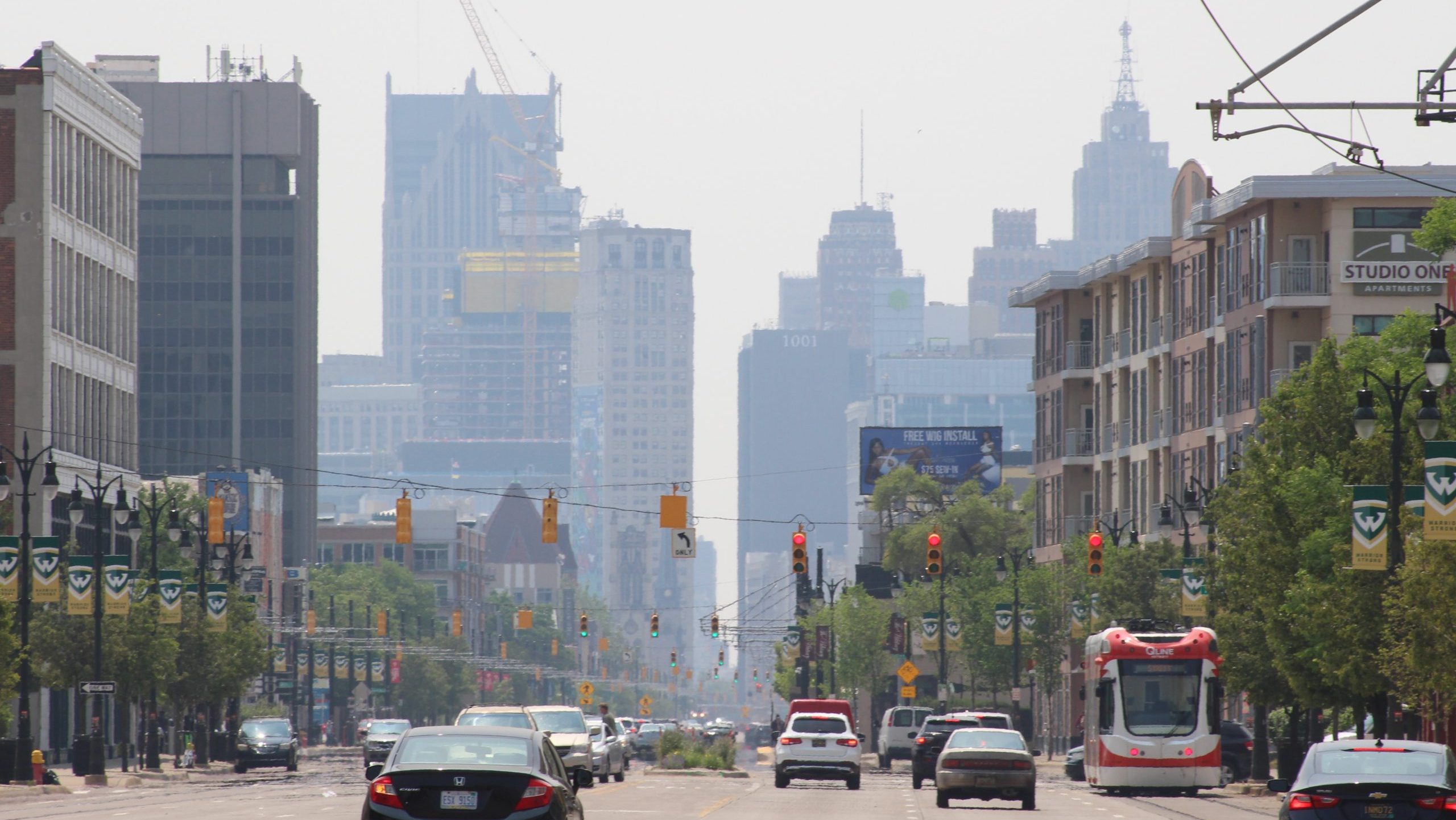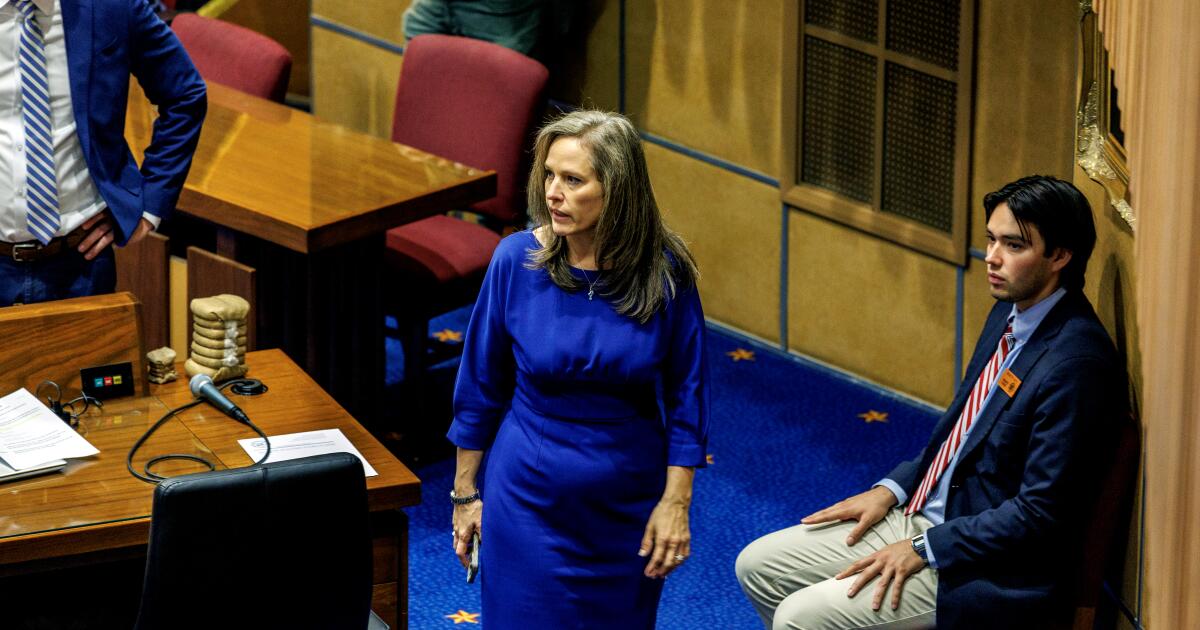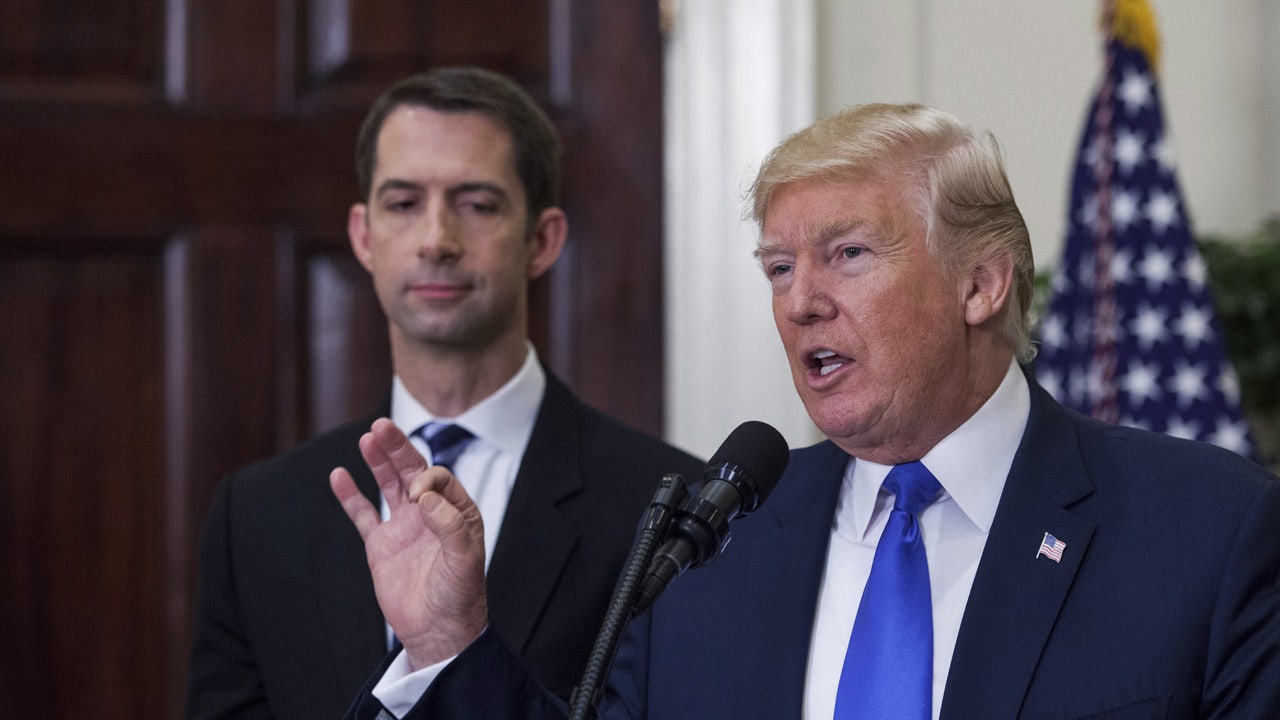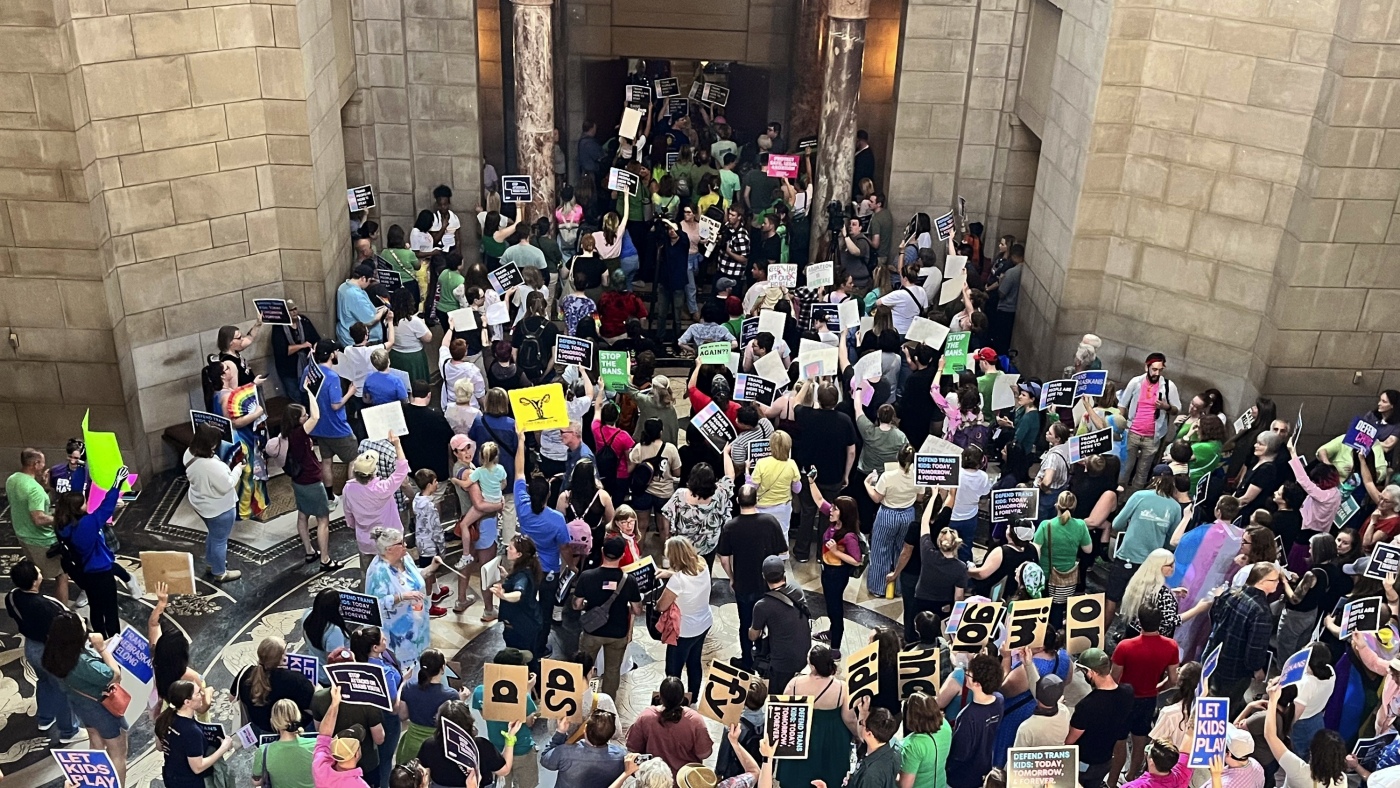World
Brussels, My Love? Industry vs. nature – who needs to breathe more?

In this edition of Brussels, my love?, we discuss a proposal for a nature restoration law that hit a roadblock this week when centre-right politicians called on the European Commission to go back to the drawing board.
This week, we were joined by Ladislav Ilčić, a Croatian MEP with the European Conservatives and Reformists Group, Chloé Mikolaijack, a climate and social hustice activist, and Mario Nava, Director-General of DG Reform at the EU Commission.
In a heated debate, industry vs. nature went head to head with the nature restoration law at the centre of the discussion. The proposed law – that aims to better protect and bring back nature in Europe – has been controversial thus far.
“Industry and nature, they used to be actually in contradiction, but they do not necessarily need to be in contradiction,” said Nava.
Not all of the panelists shared Nava’s optimistic outlook. “I will vote against it. I have to say that this approach was so unrealistic, that this approach brought the European Union to an energy crisis,” said Ilčić.
Activist Mikolaijack’s responded to the MEP, “I think it’s important to remember that what we’re talking about here is the nature restoration law rights, and the science is very clear about what we need to do,” she said. “ It’s not a debate about science. It’s a political debate ahead of the 2024 elections.”
The panel also discussed corporate sustainability due diligence, which aims to hold European companies (and those doing business in Europe) accountable for their environmental impact. The directive may even be able to impose sanctions.
“I think it’s about time that it comes into law because we’ve had so many, so many scandals and so many terrible events, such as oil spills happening elsewhere, which were the responsibility of European companies, and they were never held accountable. So I think it’s really great that it’s finally on the table.” said activist Mikolaijack
MEP Ilčić made it clear he would vote against this directive, arguing it would bankrupt Europe. “And that is what is going to happen if the European Union continuously will go in this direction of socialism, of imposing some values to the economy,” he said.
Watch ‘Brussels, my love?’ in the player above for more.

World
EU convenes Israel to discuss respect of human rights, ICJ ruling
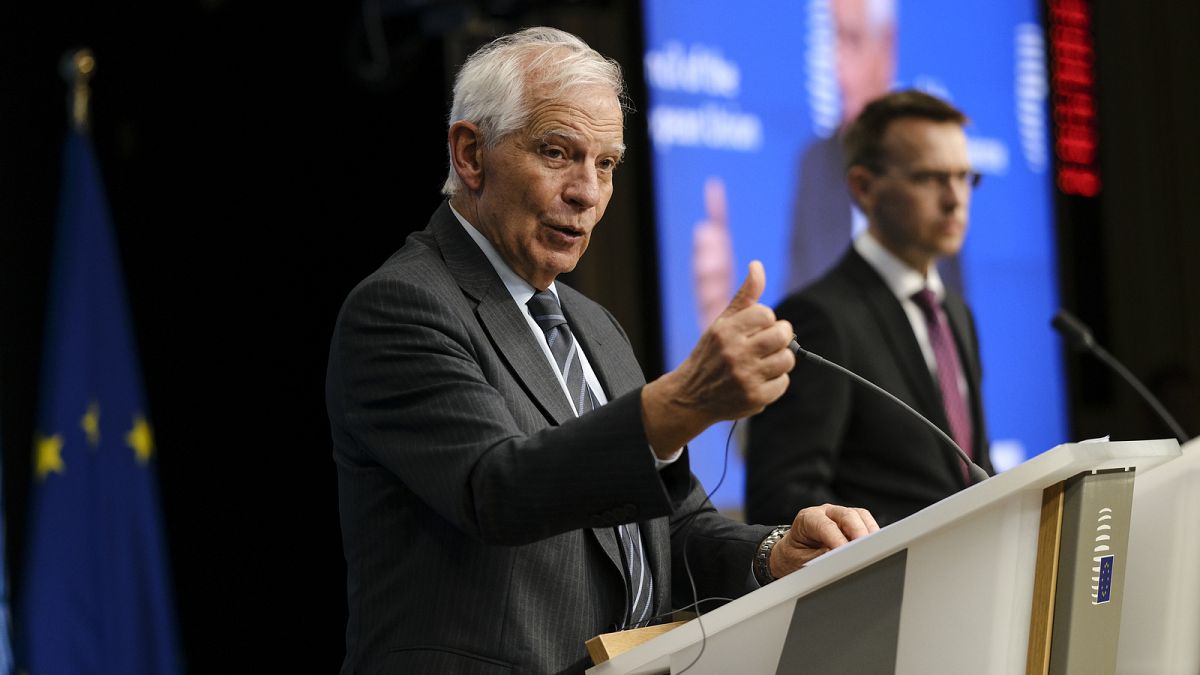
The breakthrough comes three month after Ireland and Spain first pressed on the EU executive to re-open its trade deal with Israel.
European Union foreign ministers unanimously agreed on Monday to call for an Association Council with Israel to discuss the country’s compliance with its human rights obligations under the EU-Israel trade deal, also known as the Association Agreement.
The bloc also intends to use the meeting to confront Netanyahu’s government about its compliance with Friday’s ruling by the International Court of Justice (ICJ), which ordered Israel to halt its intended military offensive in the city of Rafah.
The move comes three months after Spanish Prime Minister Pedro Sánchez and the then Taoiseach Leo Varadkar first made a plea for the urgent review of the EU-Israel Association Agreement, citing serious concerns over Israel’s military campaign in Gaza and potential violations of human rights and international law.
Article 2 of that agreement, struck in 2000, stipulates that the agreement is “based on respect for human rights and democratic principles.”
Europe is Israel’s main trading partner, accounting for just under a third of all commerce, meaning the Agreement is seen as a powerful tool for the bloc to exert pressure on Netanyahu’s war cabinet to refrain from its offensive in the war-torn Gaza Strip.
Despite the firm backing of human rights groups and the UN’s special rapporteur on Palestine, the EU had failed to garner political backing for the move until the breakthrough on Monday.
“We got the necessary unanimity to call for an Association Council with Israel to discuss the situation in Gaza (…) and the respect of human rights under the obligations that Israel has assumed under the Association Council and how they plan to implement the ruling of the court,” Borrell told reporters, referring to Friday’s ruling by the Hague-based court.
“But what we have seen since the court has issued its ruling (is) not the stop of military activities but on the contrary an increase in the military activities, an increase in the bombing and an increase in the casualties to the civilian people, as we have seen last night,” Borrell added.
On Sunday, an Israeli air strike on a camp of displaced Palestinians in the southern Gazan town of Rafah left at least 45 dead, including women and children, prompting global condemnation.
“The last figure seems to be around 40 people, including a small children being burned. I condemn this in the strongest terms. It proves that there is no safe place in Gaza,” Borrell said, describing the images, including those of burnt children, coming out of Rafah as “shocking.”
The IDF has since opened an investigation into the massacre, claiming it was targeting two senior Hamas officials.
EU foreign ministries have harshly criticised the attack, with the German foreign ministry saying the “images of charred bodies” are “unbearable.”
Bloc ups pressure on Israel amid diplomatic spats
Responding to the decision to convene an Association Council, Belgian foreign minister Hadja Lahbib said the move was a “strong signal.”
“We must ensure that our rules and values are respected by all, and above all by our partners like Israel. Our credibility depends on it,” Lahbib, whose government is a staunch supporter of the Palestinians, added.
Other foreign ministers, such as Slovenia’s Tanja Fajon, called for the bloc to go further by slapping sanctions on Israel for its continued violations of international law in its Gaza offensive.
“I strongly condemn Israel’s attack last night on the displaced Palestinians, in which many children were also burned to death,” Fajon, whose government is taking steps to recognise the State of Palestine, said on social media platform X.
“In Brussels (…) today I will stand up for respect for international humanitarian law and decision (of the) ICJ. In case of continuing violations, (the) EU must react uniformly and decisively, including sanctions,” Fajon added.
Borrell declined to comment on whether he believed his Israeli counterparts would agree to attend the Association Council, amid increasing diplomatic tensions with two member states – Ireland and Spain – which announced last Wednesday they would formally recognise the State of Palestine tomorrow, May 28.
A diplomatic row has since erupted, particularly between Israel and Borrell’s native Spain, with Israeli foreign minister Israel Katz issuing a statement Monday morning announcing his government would prohibit Spain from providing consular services to Palestinians in the West Bank.
Katz has also accused Spain’s recognition of Palestine as a “reward for terrorism.”
Borrell described the escalation as “everything but diplomatic.” “This is a completely unjustified and extreme verbal aggression,” he added.
The bloc’s top diplomat also acknowledged there was no unanimous appetite to consider sanctioning Israel for its actions in Gaza but suggested their stance could shift if Netanyahu’s government “continues to ignore” the ICJ’s ruling.
World
Access to Aid in Gaza Was Dire. Now, It’s Worse.

The flow of aid into Gaza has shrunk so much in May that humanitarian officials say their operations are at risk of shutting down, and that the threat of widespread starvation is more acute than ever.
Aid trucks entering Gaza fall far short of meeting need
The entry of aid trucks through Gaza’s southern crossings, where most aid has arrived since the war began, has nearly ground to a halt since Israel expanded its fighting in the southern city of Rafah. In northern Gaza, new entry points have enabled small amounts of critical aid to reach those who have been most at risk of famine for months. But that aid is insufficient to support the Gazan population, and most cannot reach the central and southern areas, where a majority of people are newly displaced by the war.
A ruling issued by the International Court of Justice on Friday appeared to order Israel to halt its military offensive in Rafah, although at least some of the court’s judges said limited operations could continue despite the decision. The ruling made explicit note of the “spread of famine and starvation” in Gaza and emphasized the need for “the unhindered provision at scale by all concerned of urgently needed basic services and humanitarian assistance.”
Last month, Israel had pledged to increase the aid it allowed into Gaza after the killing of seven World Central Kitchen workers in an attack by Israeli forces drew international outrage. Israel’s strict controls on aid and the challenge of distributing it within the enclave had already created catastrophic levels of hunger.
Under pressure from President Biden, Israeli officials began to bring additional aid through the port of Ashdod and opened the Erez crossing in the north, which Israel had closed after the Hamas attacks on Oct. 7. In coordination with Israel, the U.S. military built a temporary pier to bring in aid by sea, a supplement to key land routes in the south.
But in early May, Israel expanded its military operation in southern Gaza after a Hamas rocket attack killed four soldiers near a crossing at Kerem Shalom. Israel closed that crossing as well as the Rafah crossing, where a majority of aid had been coming in. Nearly 300 aid trucks had crossed there in a single day just before the incursion.
“It was a record for us since the outbreak of the war,” said Georgios Petropoulos, the head of the United Nations aid office in Rafah. “We were kind of saying, ‘OK, well, maybe we’re getting to where we need to be.’ And then boom, suddenly it’s gone.”
Aid entrypoint
Current status
Rafah crossing
The crossing remains closed after it was seized and shut down by Israel during its incursion into Rafah.
Kerem Shalom crossing
Israel reopened this southern crossing on May 8, but a very limited amount of aid and fuel, and almost no medical supplies, have entered there since.
Erez and Erez West crossings
More aid has come through these crossings, which have been open since early May, than through others since May 8, but the amounts satisfy just a fraction of the overall need.
U.S.-built aid pier
The U.N. said on Wednesday that about 60 trucks’ worth of food has been delivered to warehouses via the pier, less than the U.S. military’s goal. Aid groups temporarily suspended distribution last week after security issues.
Airdrops
A few trucks’ worth of aid enters by air sporadically.
Israel reopened Kerem Shalom on May 8, but aid workers from multiple organizations have said the vital entry point remains functionally closed, with a daily average of just eight aid trucks entering. One reason is that Egypt has refused to allow trucks from the closed Rafah crossing to continue on to Kerem Shalom.
Mr. Biden and President Abdel Fattah al-Sisi of Egypt agreed on Friday to send aid and fuel to Kerem Shalom until the Rafah border crossing could be reopened. On Sunday, 126 trucks carrying food and other aid from Egypt reached that crossing, according to a statement by the Israeli military. The U.N. distribution trucks that made it to Kerem Shalom to pick up the Egyptian aid were forced to evacuate the crossing because of a security issue, said Sam Rose, a spokesman for the United Nations Relief and Works Agency for Palestine Refugees, or UNRWA. Officials including Mr. Rose said the aid had not made it past the crossing as of Sunday.
Scott Anderson, a senior official at UNRWA, and Mr. Petropoulos have said that the crossing area is still an active military zone and that safety and logistical challenges can hold up aid that arrives at the crossing and prevent it from being immediately collected and distributed. An Israeli airstrike on a makeshift tent camp in Rafah killed at least 45 people on Sunday night, according to the Gaza health ministry. The Israeli military said the strike was aimed at a Hamas compound.
Empty trucks coming from inside Gaza en route to load aid at Kerem Shalom often sit in hours-long waits behind commercial trucks carrying goods to sell in Gaza, which officials say number more than 100 or 200 per day. While humanitarian groups say they welcome the arrival of commercial supplies, most people inside Gaza cannot afford them, and the shipments may not include basic necessities.
Getting aid to people in Gaza is also difficult because Israel’s expanded operations in the south and north have forced nearly a million people to flee to areas with little shelter, food or water on the coast or among the rubble in more central regions.
Before the Rafah operation, most people were sheltering in the areas where a majority of the aid was coming in. But now, new entry points in the north — the U.S. pier, and a new crossing called Erez West — are beset with problems. They bring in too little aid to sustain everyone and are located far from the largest clusters of people.
Before the Rafah operation
April 23 through May 6After the Rafah operation
May 7 through May 20
The distribution of the aid that does make it through each crossing also poses significant challenges. Israel’s recent evacuation orders in parts of Rafah and northern Gaza have made many aid agency warehouses unreachable and travel more dangerous. UNRWA announced on May 21 that it had suspended distribution in Rafah, citing security issues, supply shortages and an inability to access its warehouse.
Without consistent, predictable deliveries of aid, many trucks do not make it far through desperate crowds. For instance, on May 18, the World Food Program reported that 11 of 16 trucks were looted after leaving the U.S. pier.
An Israeli military road and checkpoint in the north, which bisects the enclave and prevented the easy movement of aid from the south to the north earlier in the war, is likely to create a similar problem for aid moving in the opposite direction, according to Mr. Petropoulos.
COGAT, the Israeli military agency coordinating aid delivery, has said that increasing the amount of aid going into Gaza remains a priority. It reports daily that it has inspected hundreds of trucks and coordinated their transfer to border crossings, though the figures are often higher than those reported by aid organizations, which track the number of trucks that have collected goods for entry into Gaza and exclude trucks carrying commercial goods.
Neither set of figures accounts for difficulties in distribution that can prevent aid from getting to Gazan civilians. Israel says enough aid is entering Gaza and has blamed aid groups for not distributing it faster to civilians — a characterization the aid groups dispute, saying Israeli forces have made distribution extremely difficult.
Aid organizations have also warned that they will be unable to deliver supplies to anyone if they run out of fuel, and that already inadequate amounts of safe water supplies will disappear. At least 200,000 liters of fuel are needed daily, according to Mr. Anderson of UNRWA. But just a quarter of that amount arrives on average each day since the closure of Rafah crossing, according to U.N. data.
“The fuel limitation means that we often have to choose: Do we keep the generators running at the hospital, the bakery or the sewage plant?” Mr. Anderson said.
Methodology
Daily truck counts were compiled from multiple sources, including the U.N. dashboard for southern border crossings, meeting minutes from the inter-agency Logistics Cluster, World Food Program reports and updates from COGAT, the Israeli military agency coordinating aid delivery. The counts were cross-checked with multi-date aid truck totals from the U.N. Office for the Coordination of Humanitarian Affairs and the Office of the Spokesperson for U.N. Secretary-General. Daily averages were calculated for the northern crossings from May 12 to May 15, as only a total count for that span of dates was available. Trucks carrying commercial goods are excluded.
Maps compare aid truck inflows over the two weeks before the Rafah operation and the two weeks after. Population estimates are based on reports by the United Nations, the Palestinian Central Bureau of Statistics and preliminary, internal estimates from aid organizations in Gaza. Estimates are based on satellite imagery analysis, field observations and shelter registrations, and are subject to change.
World
Egyptians, IDF exchange gunfire at Rafah border crossing: reports
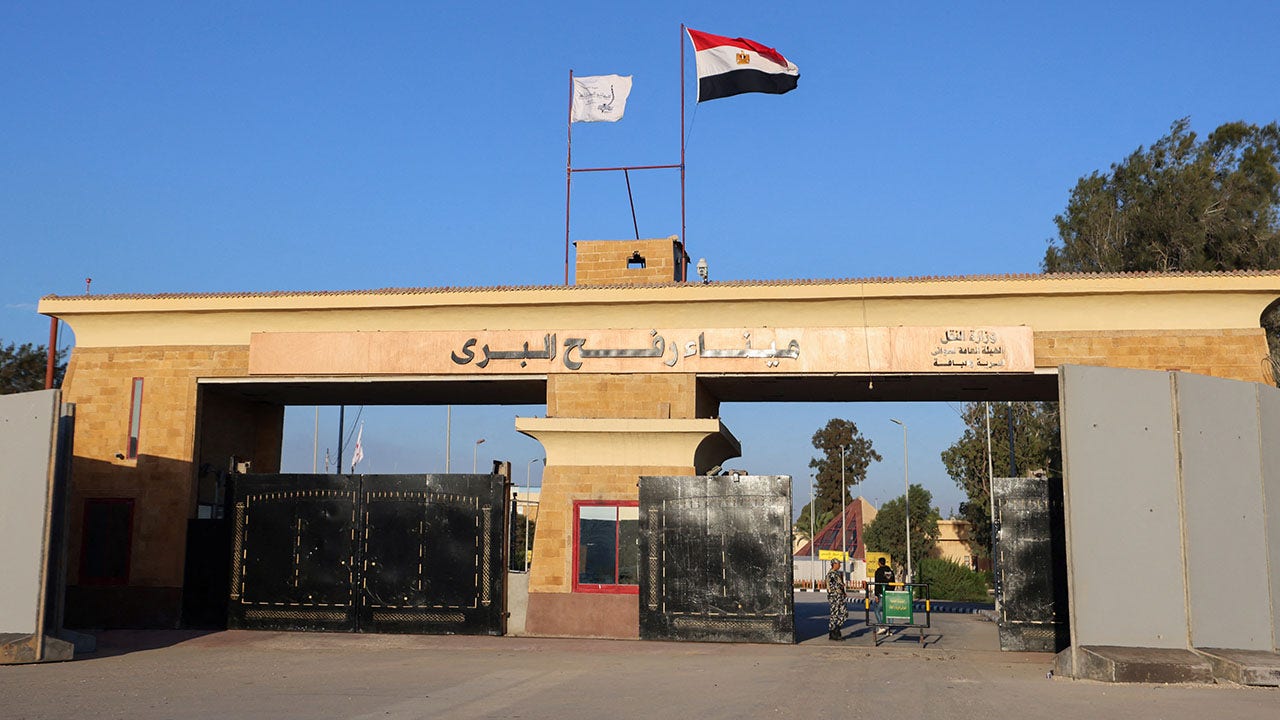
Egyptian service members and Israeli Defense Forces exchanged gunfire Monday at the Rafah border crossing along the Gaza Strip, the Times of Israel is reporting.
Other Israeli media outlets are reporting that an Egyptian soldier was killed Monday during the incident.
The Israel Defense Forces said “a shooting incident occurred on the Egyptian border” and that the “incident is under review and discussions are being held with the Egyptians.”
The gunfight comes just hours after an Israeli airstrike on a Hamas compound in Rafah killed two top Hamas officials as well as dozens of civilians.
‘SQUAD’ MEMBER RASHIDA TLAIB CALLS BIDEN ‘ENABLER’ OF GENOCIDE AT CONFERENCE LINKED TO TERRORIST GROUP, CCP
The Rafah border crossing between Egypt and the Gaza Strip in November 2023. (Reuters/Mohamed Abd El Ghany)
While the exact number of killed remains unclear at this time, the IDF confirmed that it struck a Hamas compound in which “significant Hamas terrorists were operating.”
The IDF said it carried out the strike “against legitimate targets under international law.”
IDF sources told Fox News Digital the strike eliminated Yassin Rabia, the commander of Hamas’ leadership in Judea and Samaria, as well as Khaled Nagar, a senior official in Hamas’ Judea and Samaria wing.
The IDF said both men had perpetrated numerous terrorist attacks in the early 2000s in which Israeli civilians and soldiers were killed.
The IDF acknowledged reports that “several civilians in the area were harmed” from the airstrike and a subsequent fire. It said incident is “under review” as well.
ISRAELI AIRSTRIKE ON RAFAH KILLS 2 TOP HAMAS COMMANDERS, DOZENS OF CIVILIANS

Fire rages following an Israeli airstrike in Rafah in the southern Gaza Strip on Sunday, May 26. (Reuters/Reuters TV TPX Images of the Day)
Last week, the United Nations’ top court issued an order demanding Israel “immediately halt its military offensive” against Hamas in Rafah, the Palestinian terrorist group’s final stronghold in the Gaza Strip.
“The military ground offensive in Rafah, which Israel started on 7 May 2024, is still ongoing and has led to new evacuation orders,” the International Court of Justice said in its ruling. “As a result, according to United Nations reports, nearly 800,000 people have been displaced from Rafah as of 18 May 2024.”
It added that the “immense” humanitarian risks “associated with a military offensive in Rafah have started to materialize and will intensify even further if the operation continues.”
But Israeli government spokesperson Avi Hyman, when asked about the ICJ order on Friday, declared, “No power on earth will stop Israel from protecting its citizens and going after Hamas in Gaza.”
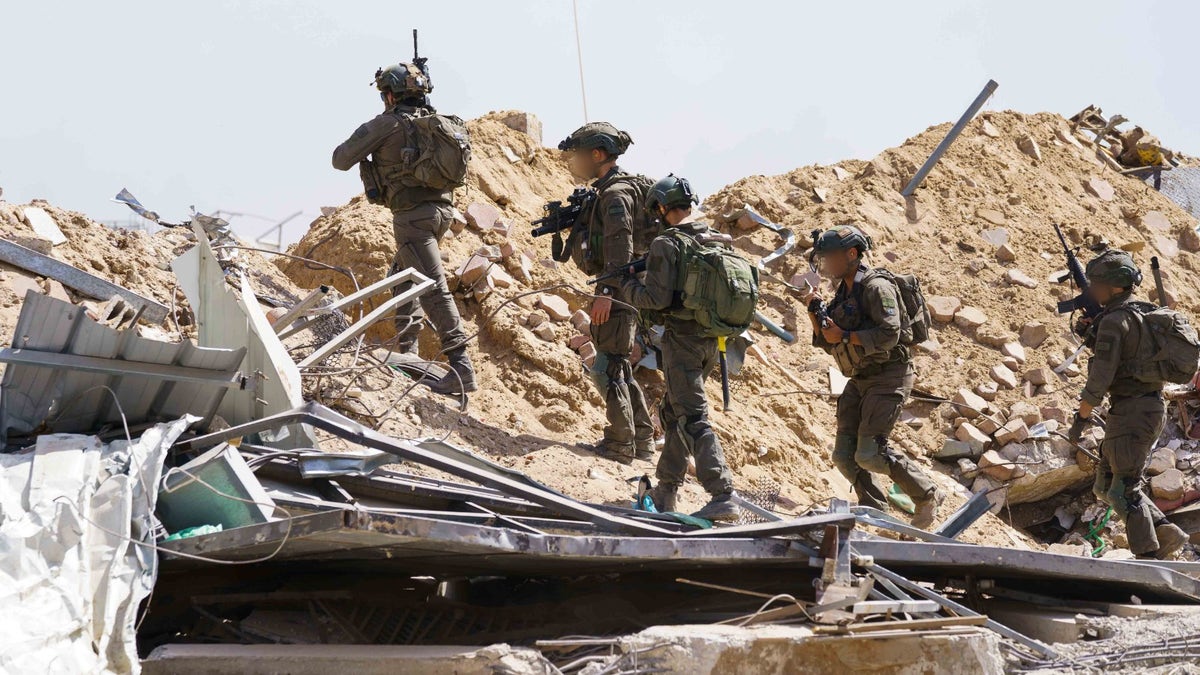
The IDF says its “troops are continuing operations against terror targets in the area of Rafah.” (IDF Spokesman’s Office)
“We will destroy Hamas, we will return peace and security to the people of Israel and to the people of Gaza,” Hyman added. “We cannot go on with a genocidal terrorist regime on our southern border.”
Fox News’ Bradford Betz and Trey Yingst contributed to this report.
-

 Movie Reviews1 week ago
Movie Reviews1 week ago‘The Substance’ Review: An Excellent Demi Moore Helps Sustain Coralie Fargeat’s Stylish but Redundant Body Horror
-

 Politics1 week ago
Politics1 week agoTrump predicts 'jacked up' Biden at upcoming debates, blasts Bidenomics in battleground speech
-

 World1 week ago
World1 week agoIndia’s biggest election prize: Can the Gandhi family survive Modi?
-

 Finance1 week ago
Finance1 week agoSan Bernardino finance director claims she was fired after raising concerns about costly project
-

 News1 week ago
News1 week agoVideo: A Student Protester Facing Disciplinary Action Has ‘No Regrets’
-

 World1 week ago
World1 week agoPanic in Bishkek: Why were Pakistani students attacked in Kyrgyzstan?
-

 Movie Reviews1 week ago
Movie Reviews1 week ago‘Rumours’ Review: Cate Blanchett and Alicia Vikander Play Clueless World Leaders in Guy Maddin’s Very Funny, Truly Silly Dark Comedy
-

 News1 week ago
News1 week agoPhiladelphia police make several arrests as protesters try to occupy Penn's Fisher-Bennett Hall
